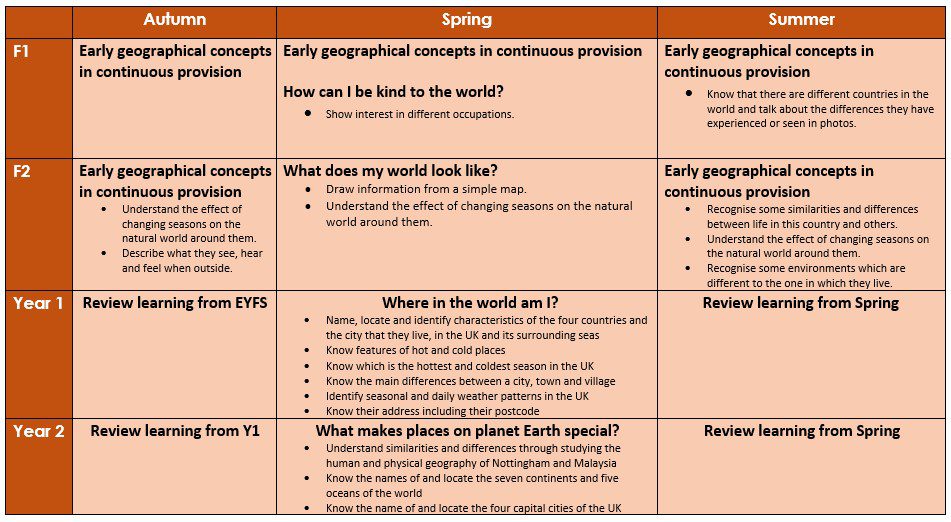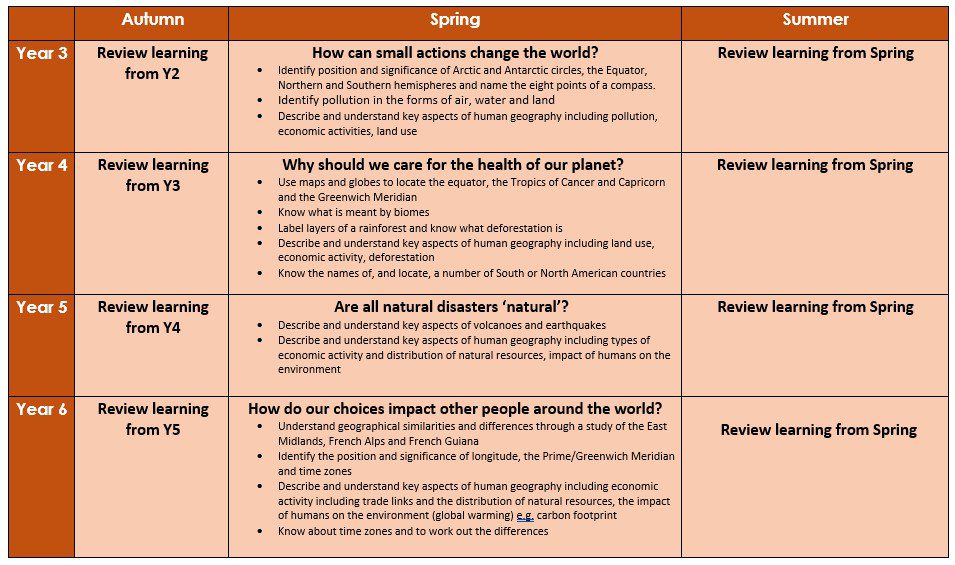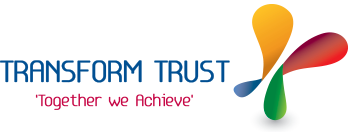
Vision
At Robert Shaw, we believe in the importance of Geography to provoke and answer questions about the world. It provides an opportunity to develop and deepen cultural awareness, understanding and resolving issues about the environment and recognising the importance of sustainable development. Geography inspires children to think about their own place in the world, their values, and their rights and responsibilities to other people and the environment. It equips the children of Robert Shaw with knowledge to appreciate the diverse places, people and resources of the world. Our Geography curriculum is underpinned by the Oxfam curriculum for global citizenship.
Throughout the curriculum journey, from the start of EYFS to the end of year 6, children will learn about the Big Ideas of Geography:
• The Physical world: the land, water, air and ecological systems; landscapes, and the processed that bring them about and change them.
• Human environments: societies, communities and the human processes involved in understanding work, home, consumption and leisure – and how
places are made.
• Interdependence: crucially, linking the physical world and human environments and understanding the concept of sustainable development.
• Place and space: location knowledge and recognising similarities and differences across the world and developing knowledge and understanding of
location, interconnectedness and spatial patterns
• Scale: the ‘zoom lens’ through which the subject matter is ‘seen’ and the significance of local, regional, national, international and global perspectives
• Children’s lives: using their own images, experiences, meanings and questions; ‘reaching out’ to children as active agents in their own learning
Alongside the key factual information, outlined below in our curriculum, children at Robert Shaw will be thinking like geographers:
• Asking geographical questions (where, how, when, who, why?)
• Finding geographical information (research, field studies, primary/secondary sources)
• Organising geographical information (graphs, charts, tables, plans, maps)
• Analysing geographical information (recognising trends and patterns on maps and on graphs)
• Answering geographical questions (sharing learning, drawing conclusion and making evaluations)




